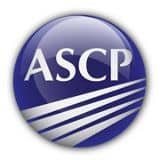By Sharon L. Harris, MS, MT (ASCP), SBB, and Mary Ann Bone, MT (ASCP)

From the start, we faced a number of challenges in our efforts to improve service and turnaround time on test results. These included low morale, the need for better communication and cooperation within the laboratory and inter-departmentally, and the need for more cutting-edge technology and error-proof safety measures. While many of the technicians had good intentions and worked hard, the mind-set of the department as a whole was mired in complaining and finger-pointing. Instead of being focused on fixing problems and finding solutions, the staff was focused on affixing blame, a problem common in many organizations.
The QBQ! Training System
We undertook a number of measures to improve service, including a program of personal accountability through the QBQ! Training System. QBQ! helped us lay the foundation and create the right mind-set for improving the quality of our service from the inside out. It demonstrated how each person must recognize that he or she needs to be an active part of the solution or move over to allow those willing to improve to do so.
The program has changed the culture at our lab. It defines accountability and provides clear and concise tools that can be used by each employee to practice accountability on a daily basis. We have seen a change in how staff members approach problems they encounter. They are much more focused on new solutions and open to trying a different approach to remedy the problem.
QBQ! is the question behind the question, a method adopted by a number of Fortune 1000 organizations to recognize and unleash the power of personal accountability at all levels. The four-module QBQ! Training System was developed by QBQ! author and speaker John G. Miller, president and founder of Denver-based QBQ Inc, an organizational development firm focused on helping organizations make personal accountability a core value. QBQ! helps individuals take ownership by replacing “whodunit” questions with QBQs.
A Cornell graduate and former top management trainer, Miller developed QBQ! over the course of a decade and some 10,000 hours of facilitating sessions where he observed that when faced with challenges and frustrations, professionals often resorted to blaming questions. “Instead of brainstorming and problem-solving, they blamestormed, creating more problems and inaction,” says Miller.
We launched QBQ! in the fall of 2003, facilitating it by combining our knowledge of the lab and other departments with the QBQ! facilitator manual. The program was rolled out to the supervisory staff and subsequently to all the lab technicians. We felt it was critical to first improve communications and cooperative interaction inside the lab before implementing the training in other departments.
Program Results
QBQ! empowers employees at all levels to become leaders in the areas they influence. They own the system and provide the solutions to improve the processes. Improvements at our lab have been encouraging. Some of the results to date include:
• The emergence of a more solutions-oriented staff, with members actively asking where they can assist with projects.
• The staff is actively involved in revising procedures instead of complaining about them. For example, many members became involved in designing and building a lab Web site for improved communication. Others designed “We I.D.” buttons as a fun way of reminding all staff to positively identify patients.
• We have noticed a vast reduction in the “we’ve always done it that way” mind-set. QBQ! has helped the staff search together for new solutions.
• A number of time-saving and safety-enhancing measures have been put in place, including minimizing replication in inputting data and replacing hard copies of information with electronic ones for easier access.
While these sound simple, implementing these measures would have seemed impossible a year ago because we operated in a blame environment.
Creating a no-blame environment has made staff members much more forthcoming about their own performance and ways to improve the system. Thanks to laying the groundwork with QBQ!, our “good catch” program for reducing omissions and learning from mistakes has been a success. Staff has moved from no documentation of occurrences to writing themselves up to learn from the occurrence. We now post the complete lists of incidents for the month in the lab so that employees can review the information and identify areas for process improvements in order to prevent future mistakes.
Improved Morale
We have been growing with the QBQ! program for 1 year now and we have seen an increase in staff morale and involvement. Now that lab employees are more involved, there is greater overall job satisfaction. Department employee satisfaction surveys show an increase in the “satisfied” and “very satisfied” categories. In addition, we continue to receive open feedback with suggestions for improvement and changes intended to improve the services the laboratory provides. Also, plans are under way to roll out QBQ! in other departments at the hospital.
QBQ! is designed to be easily facilitated internally and an external facilitator can be provided. The full course can be implemented in four 1 to 3 hour sessions, two half-day sessions, or one full-day session.
Sharon L. Harris, MS, MT(ASCP), SBB, is laboratory director and Mary Ann Bone, MT(ASCP) is a laboratory technologist at Harris Methodist H.E.B. Hospital, Bedford, Tex.



